Finalizing the UN Plan of Action on Countering Hate Speech and Fostering Peace Mediation and Just Societies
Event | November 2023
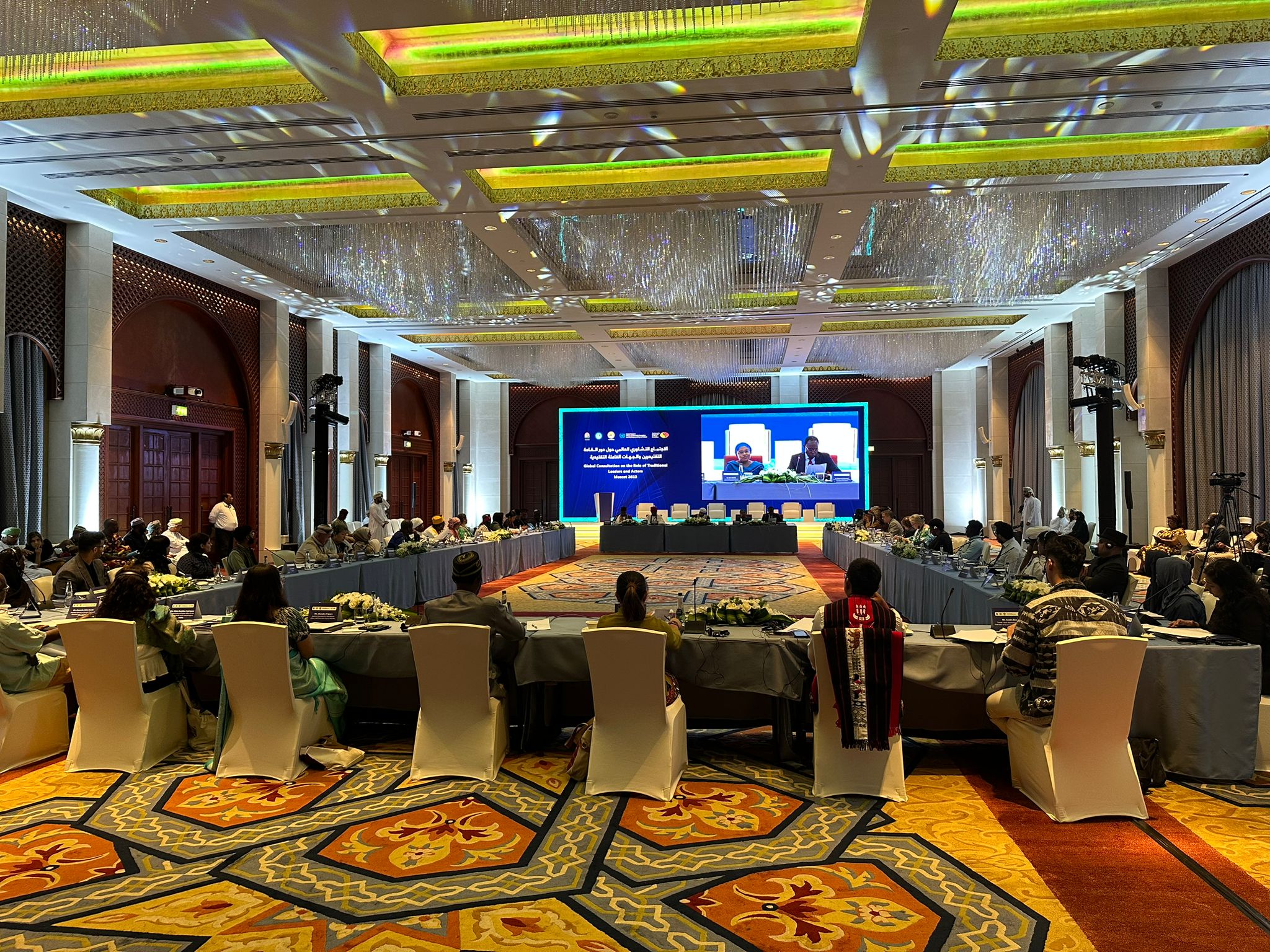
Dr. Mohamed Elsanousi, Executive Director of the Peacemakers Network and Dr. Alice Wairimu Nderitu, UN Special Advisor on the Prevention of Genocide share remarks.
The Peacemakers Network, in collaboration with the United Nations Office on Genocide Prevention of the Responsibility to Protect (OSAPG) and the Sultanate of Oman, orchestrated a two-day global consultation in Muscat bringing together over 60 traditional leaders and actors representing diverse communities from six continents. The primary focus of the consultation was on finalizing the United Nations Plan of Action on Countering Hate Speech and Fostering Peace Mediation and Just Societies. The participants, hailing from various ethnic, indigenous, clan communities, and traditional societies, convened to discuss their pivotal roles and responsibilities in preventing atrocity crimes, with a specific emphasis on mediation processes in situations at risk of such crimes.
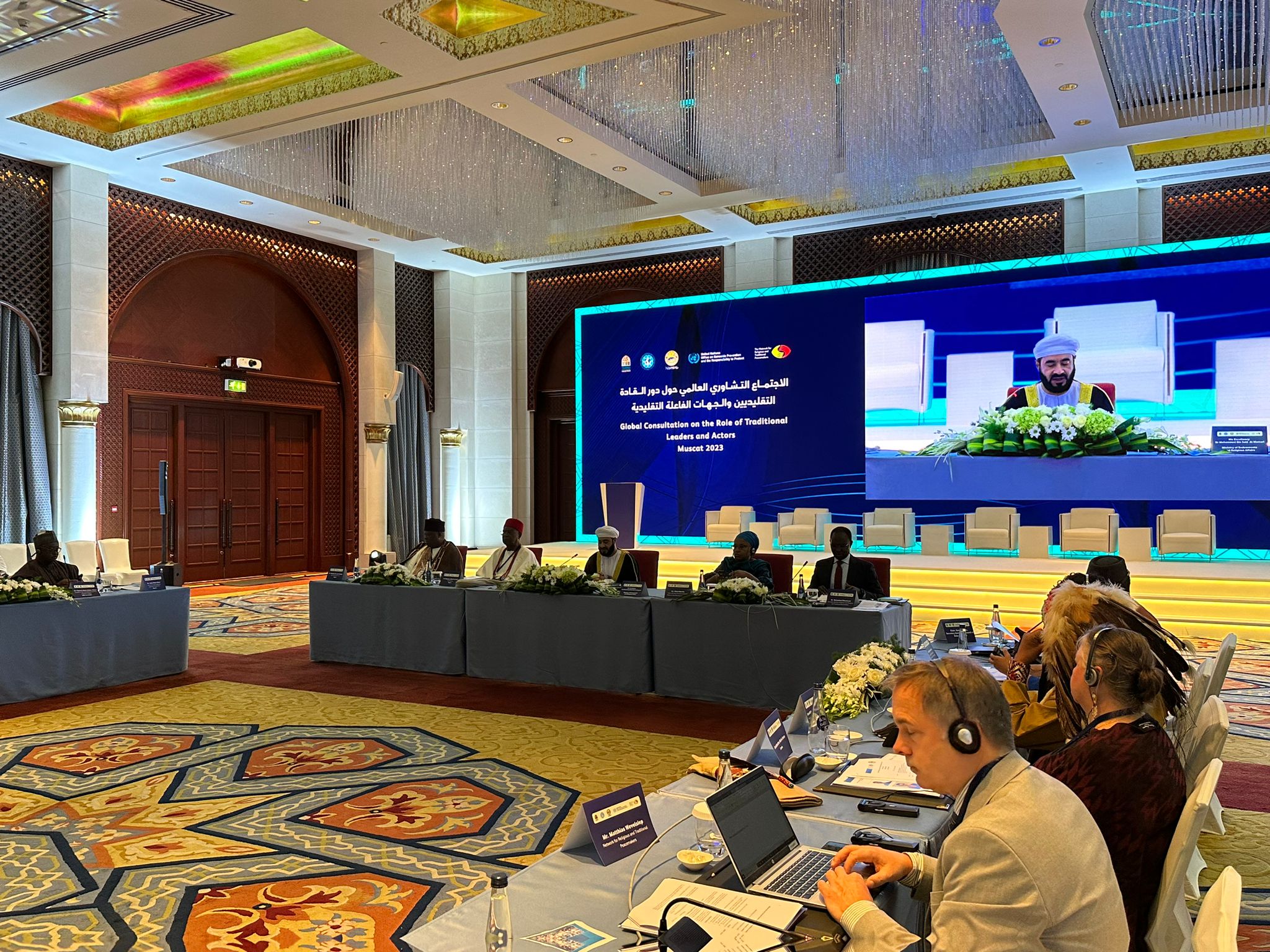
H.E. Dr. Mohammed Al Maamari sharing remarks at the consultation.
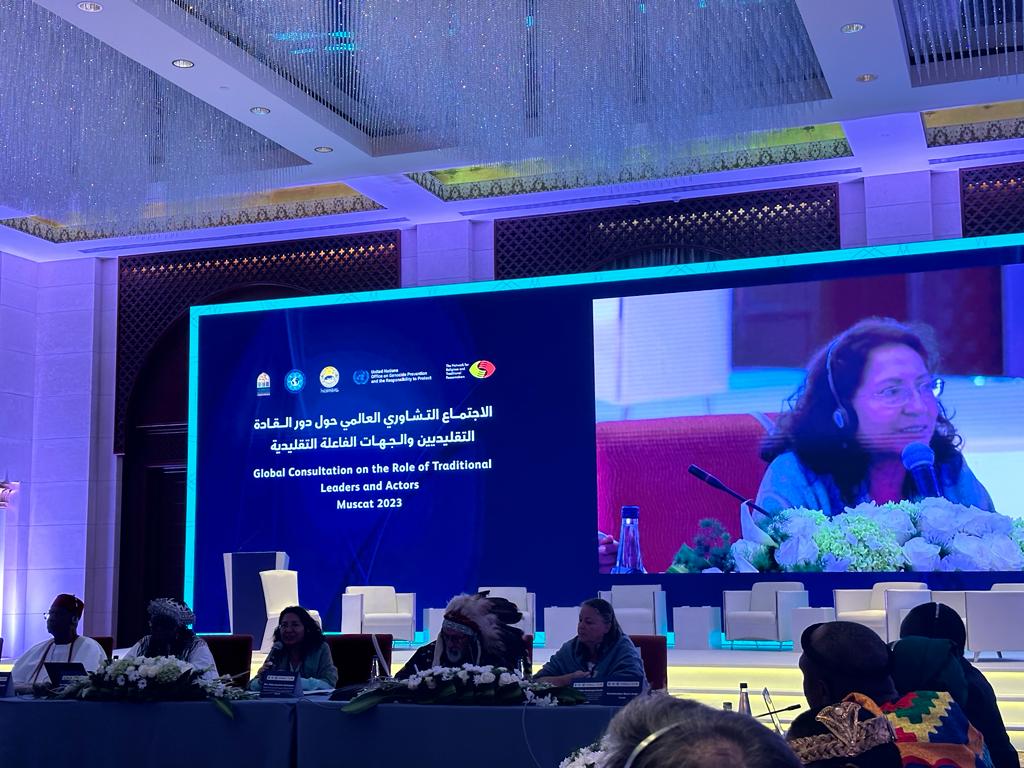
Nidia Bustillos Rodriguez, Pawanka Fund and Program Officer for the Artic and Pacific socio-cultural Regions (Bolivia).
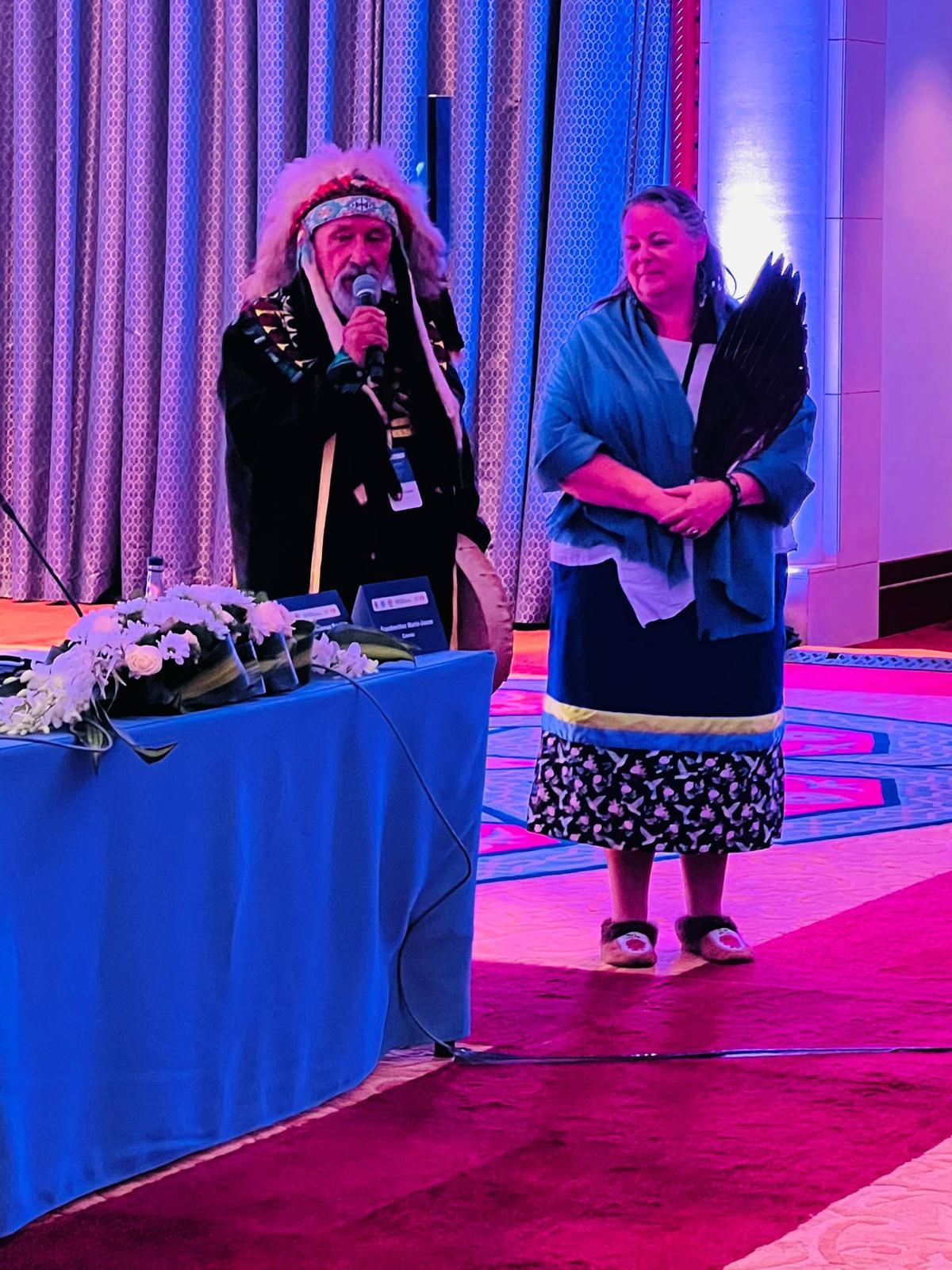
Grandfather Dominque Rankin, Founding President of the Dominique Rankin Foundation, and Grandmother Marie-Josee, Elder from the Algonquin tradition in Canada and Founder of the non-profit organization KINA8AT sharing remarks at the consultation.
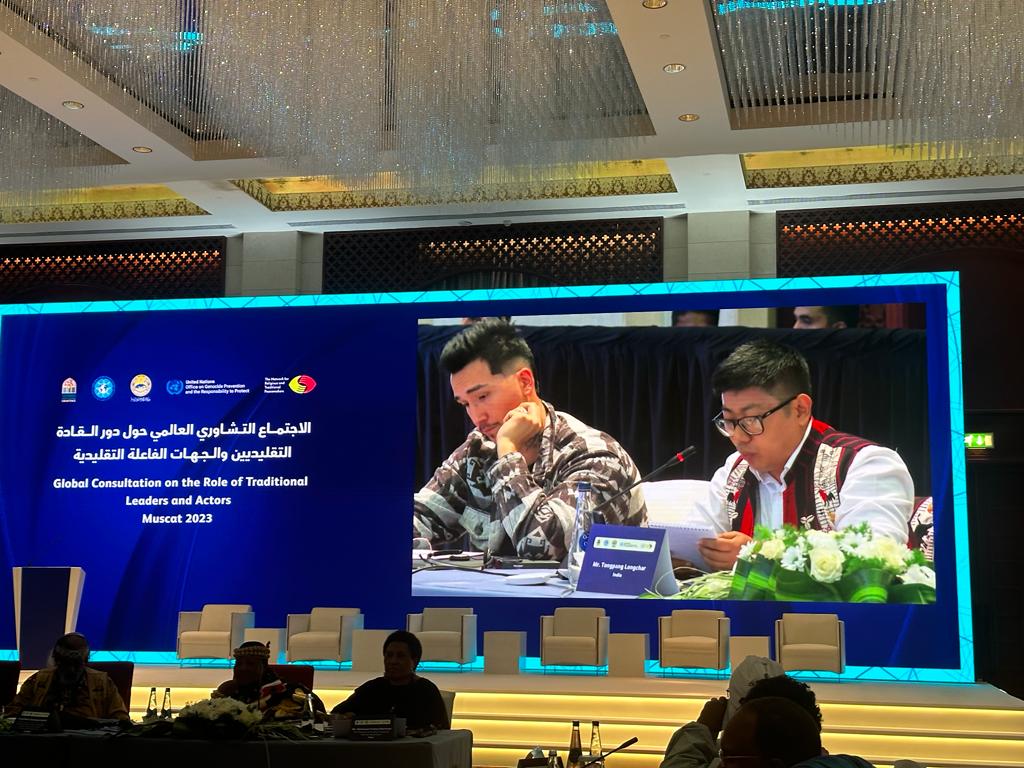
Peacemakers Network member, Tongpang Kumzuk sharing insights of traditional leaders and actors’ involvement during the consultation.
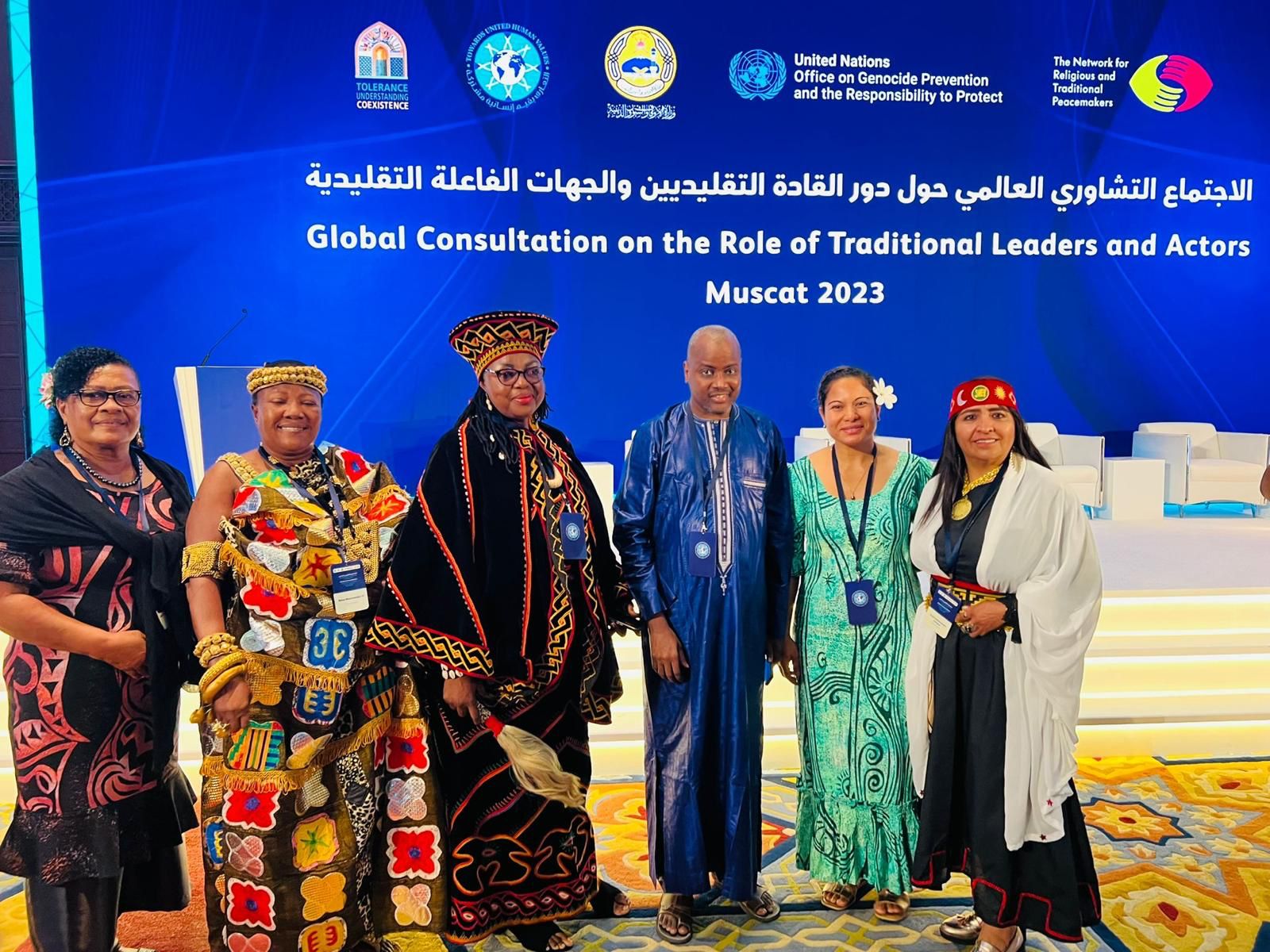
Traditional leaders and actors share a photo together.
There was broad consensus among the participants regarding the Plan of Action’s paramount importance and its urgent necessity in advancing peace and security at the local level. There was also a collective acknowledgement that the Plan of Action should further strengthen its language on peace mediation. Traditional actors play a crucial role in peace mediation, bringing unique perspectives, cultural insights, and community-based approaches to conflict resolution because their involvement is rooted in their deep connection to local communities, historical knowledge, and traditional practices. As such, speakers underscored the need to integrate traditional and formal mechanisms that can enhance the effectiveness and sustainability of peacebuilding efforts. At the same time, they often lack the capacity and resources to in peace mediation, hence require support from international actors.
To ensure local ownership and inclusivity, all sessions were led and facilitated by the traditional leaders and actors. Notably, the composition of the participants was diverse, with over half being women and 20 percent representing youth.
Looking ahead, the Peacemakers Network and OSAPG will collaboratively compile and integrate all the valuable inputs received during the consultation to finalize the Plan of Action. The culmination of this effort will see the UN Secretary-General launching the UN Plan of Action at the United Nations in May 2024, marking a significant step toward fostering global collaboration in countering hate speech and promoting peace mediation and justice with prominent engagement from traditional actors.
About the UN Plan of Action on Countering Hate Speech and Fostering Peace Mediation and Just Societies
Identity-based conflicts, namely those based on ethnicity, race, religion, or nationality, can no longer be characterized simply as “conventional,” rather they are highly comlpex and interlinked. The inability for states to effectively respond to the eroding security and humanitarian situations has allowed emergence of several competing armed actors.
Traditional authorities, such as ethnic chiefs, heads of clan, or community or indigenous leaders hold a significant role in local governance, security, taxation, and conflict mediation, especially in the absence of state authority. These non-state actors have historically managed their critical roles by establishing “governance systems,” which include, but are not limited to, conflict prevention, resolving disputes, and peacebuilding and humanitarian initiatives yet are still not fully recognized as legitimate participants in governance.
To fill this gap, the United Nations Office on Genocide Prevention and Responsibility to Protect jointly with the Network for Religious and Traditional Peacemakers organized a global meeting in Abuja, Nigeria, in June 2022. This meeting brought together traditional rulers and actors from around the world to discuss their roles and contributions in countering hate speech and fostering peaceful and just societies with the ultimate objective to prevent violence and atrocity crimes. As a result, the meeting drafted the Plan of Action for Traditional Leaders on Countering Hate Speech and Fostering Peaceful and Just Societies.
Follow the Network on social
